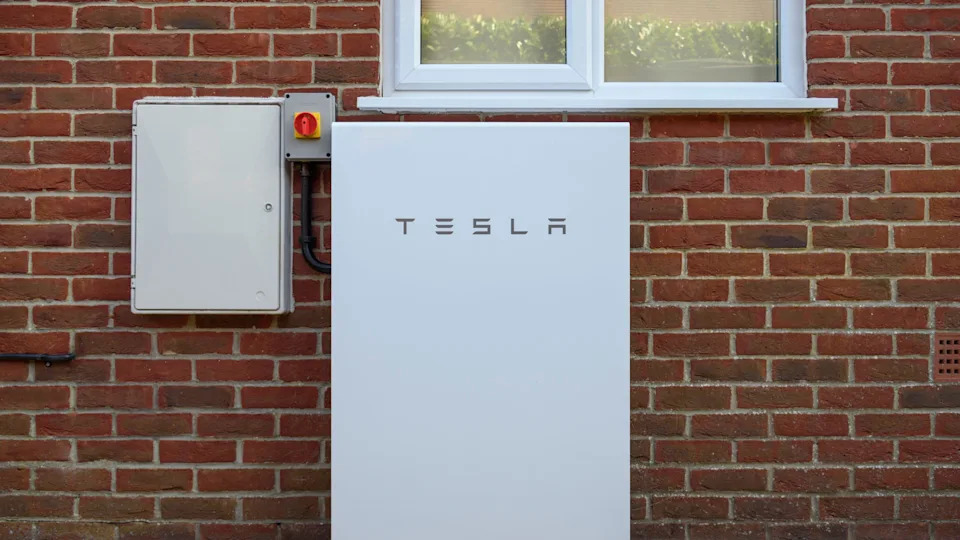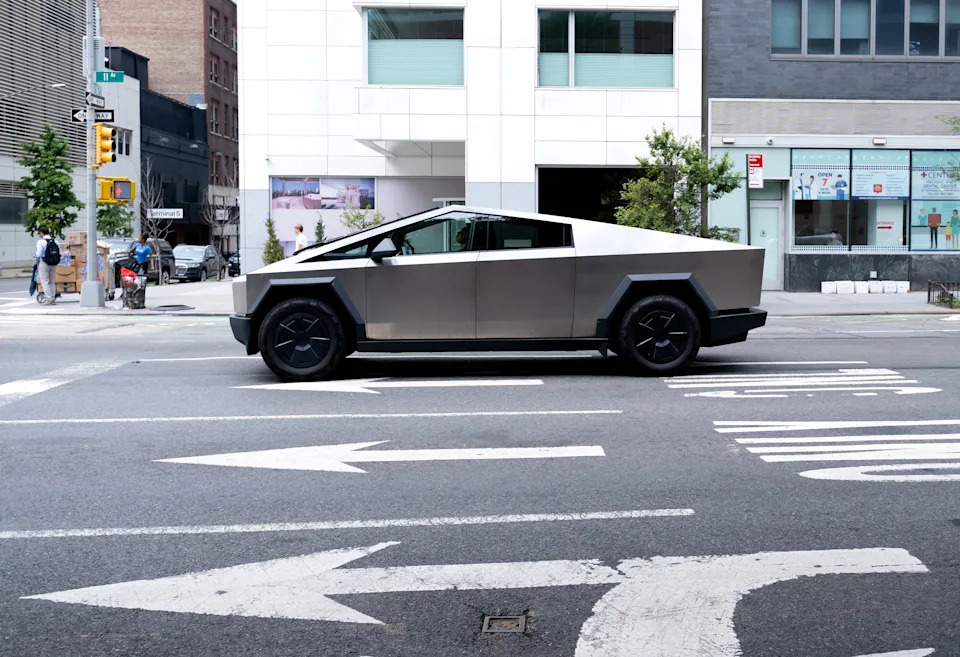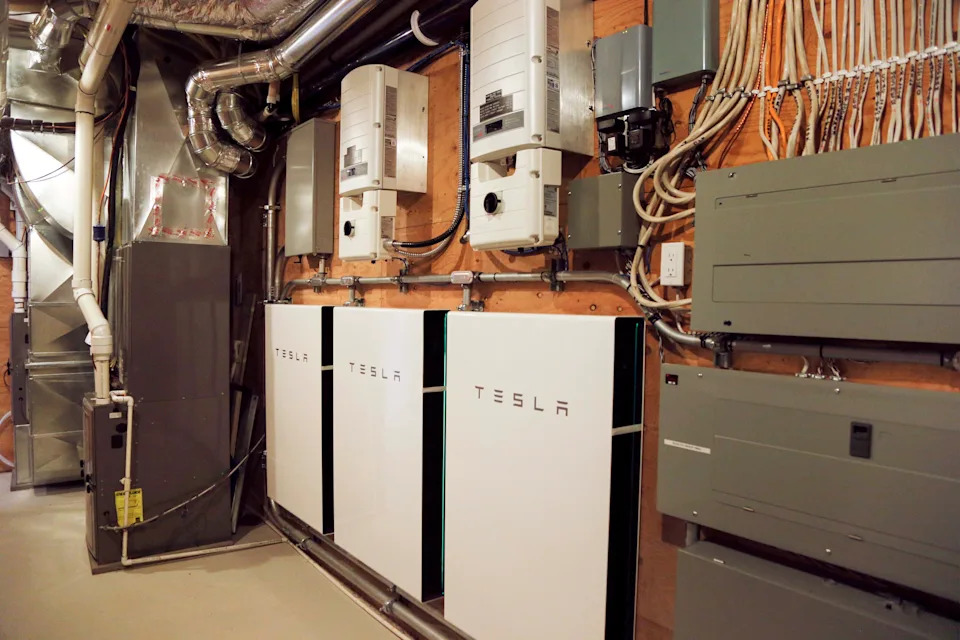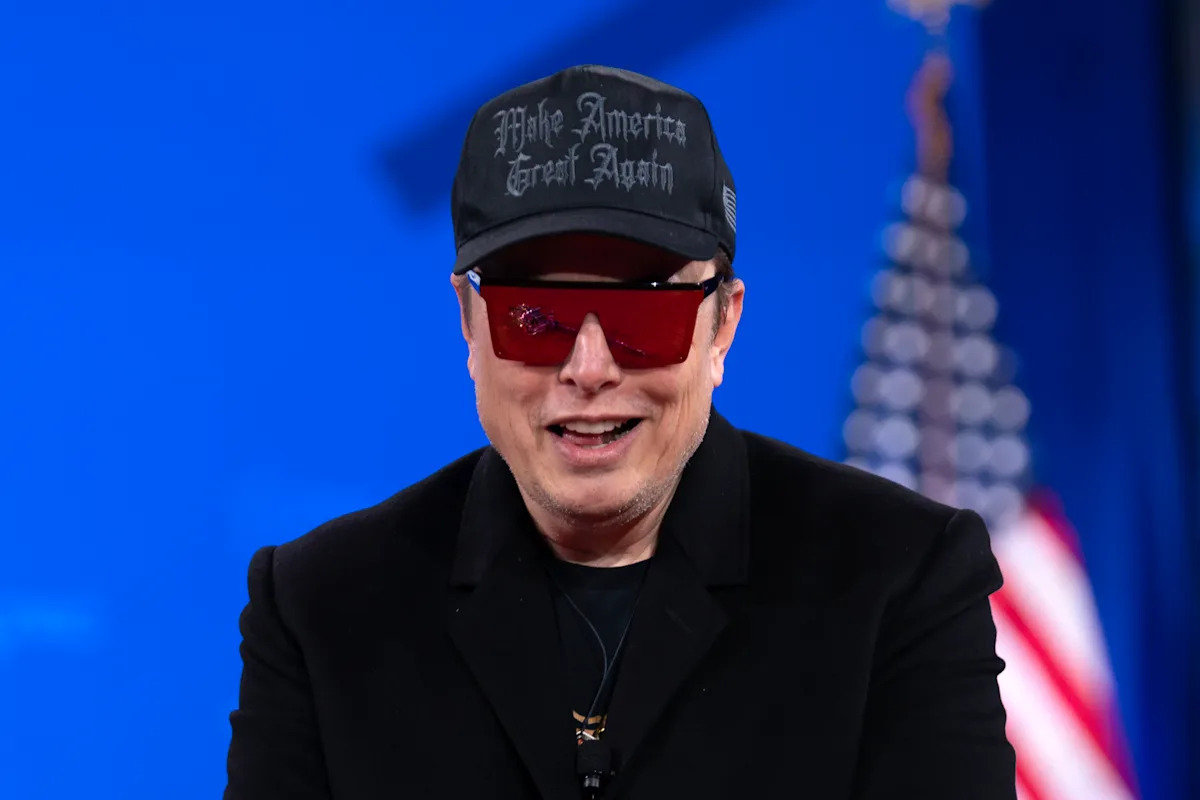Thousands of people have urged Ofgem to block Tesla from supplying electricity to British households, citing Elon Musk’s “clear political agenda” and “malign influence”.
The electric car manufacturer applied for a licence from the energy regulator last month with the aim of supplying power to homes and businesses in England, Scotland and Wales as soon as next year.
However, campaign group Best for Britain says it is clear that the company’s billionaire owner “is not a fit and proper person to be given a foothold in our essential services”.
“Musk uses his business interests to promote dangerous conspiracy theories and support radical and far-right figures – even in the UK,” it says on its website, in an apparent reference to Musk’s backing of Tommy Robinson.
Yahoo News has contacted Tesla for comment.
Best for Britain has urged the public to write to Ofgem using an online tool on its website, which more than 8,400 people have used so far. The closing date for comments on the application is Friday, August 22.
The group’s chief executive Naomi Smith said: “We’ve all had a front row seat to Musk’s malign influence. British people are rightly against Musk being anywhere near our electricity supply.”

A solar-powered Tesla Powerwall 2 installed on the side of a home. (PA)
How could a Tesla power a home?
Tesla has been involved in the UK energy market since 2020, when it was granted a licence to be an electricity generator. Now, it aims to enter the British energy market as a supplier.
In the US, the group has been an electricity supplier for the past three years in Texas, where it provides electricity to homes via Tesla Electric.
The company’s “Powershare” technology means households that own one of Tesla Cybertruck models can essentially use their EV as a power source for the home.
The process is referred to as V2X – vehicle-to-everything.
Because of the sheer size of batteries in EVs, homeowners can effectively “store” electricity in their Tesla. When a power outage is detected, Powershare automatically provides back-up electricity for the home.
This would mean Tesla cars could soon function as an effective “battery” to supply British homes with electricity, while the company’s new energy venture also allows homeowners to sell surplus energy back to the grid.
The Cybertruck, for example, is capable of delivering 11.5 kilowatts of continuous power and is able to meet the energy needs of an average home for three days.

Tesla’s Cybertruck holds enough electricity to power homes for three days. (Getty)
The vehicle also has multiple 120V and 240V outlets, which can be used to power devices needed for, say, camping trips. Or even to turn the car into a remote workplace.
Paired with other technology – such as home batteries – V2X could allow homes more control over how they buy and use electricity.
Households in Texas have also been able to lower their electricity bills by powering a vehicle at night when electricity is cheap, and then using it to run home appliances during the day.
What other functions might Tesla bring to the UK?
Tesla Electric offers cheap, renewable energy, managed through a mobile app and is built particularly for people who own a Tesla Powerwall home battery or a Tesla vehicle.
With Powerwall, consumers are encouraged to buy electricity at night and sell electricity back to the grid when prices are high – this means that the grid is more stable, and customers with Powerwalls can profit.
Tesla currently offers Powerwall via energy provider Octopus in the UK.

A Tesla Powerwall installed in a home. (Getty)
With multiple homes selling electricity to the grid, it works as a virtual power plant, which helps to support the grid at peak times.
Tesla says: “A virtual power plant (VPP) is a network of distributed energy sources such as homes with solar and battery systems, working together as a single power plant. The combined energy of these sources is used to support the electrical grid.”
Tesla also sells solar panels, which can be used to top up Powerwall batteries.
Declining sales across Europe
The news comes amid a backdrop of waning demand for Tesla’s electric vehicles across Europe in recent months.
New car registrations in Britain and Germany more than halved in July from a year earlier. Some have argued Musk’s political support for Donald Trump has impacted sales. However, it is also the case that competition has also increased.
Sales of EVs made by China’s BYD, for example, rose nearly five-fold in Germany and over four-fold in Britain in July.
Nonetheless, industry figures showed an almost 60% plunge in the number of new Tesla registrations in the UK in July, compared with a year earlier.
In further bad news for Musk, on 1 August a jury in Florida found Tesla liable to pay $243m (£180m) to victims of a 2019 fatal crash of an autopilot-equipped Model S.
Jurors in the Miami federal court awarded the estate of Naibel Benavides Leon, as well as her former boyfriend Dillon Angulo, $129m in compensatory damages plus $200m in punitive damages, according to a verdict sheet.
Tesla has said it will appeal the decision, which could encourage more legal action against the company.
Read more
